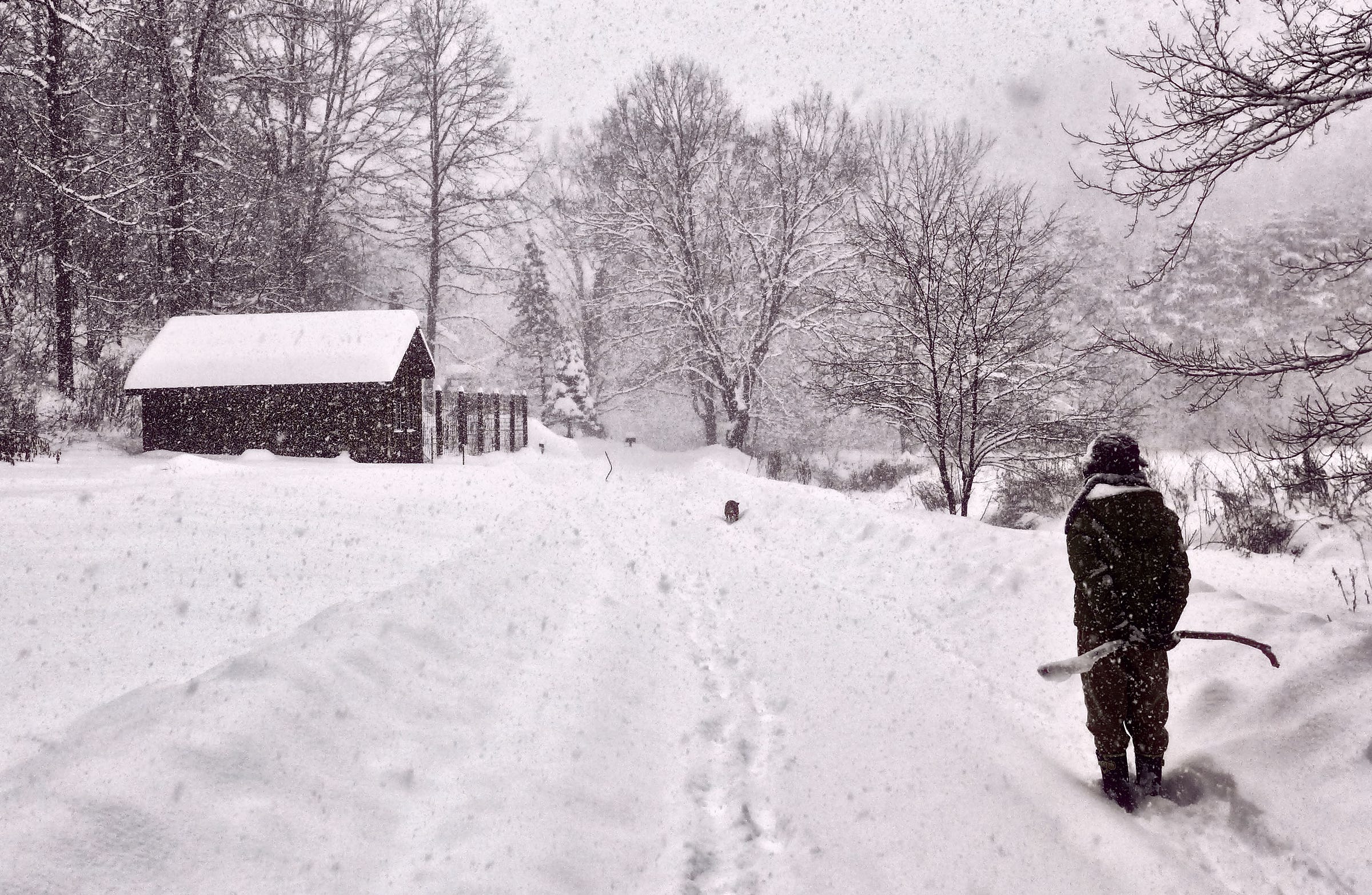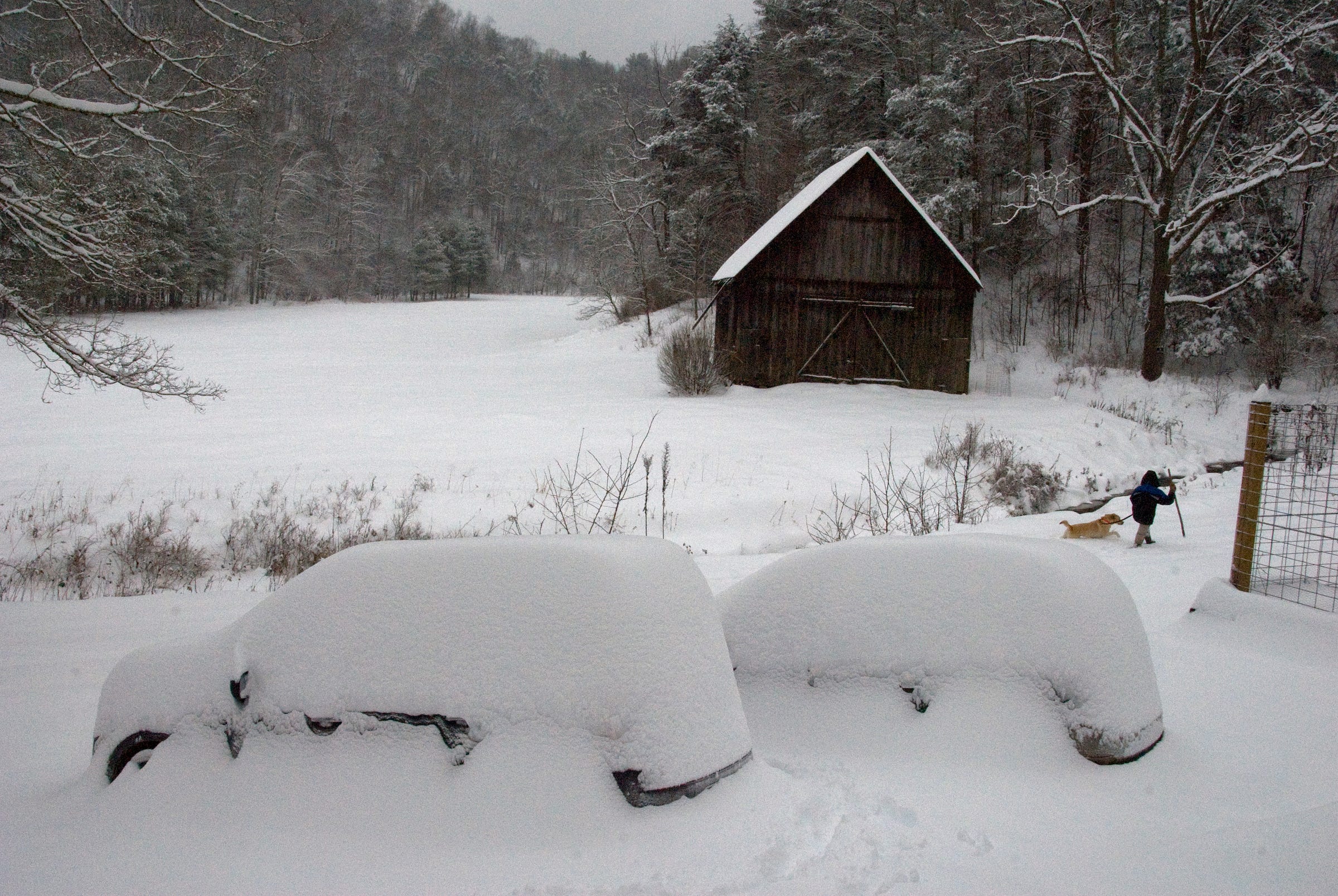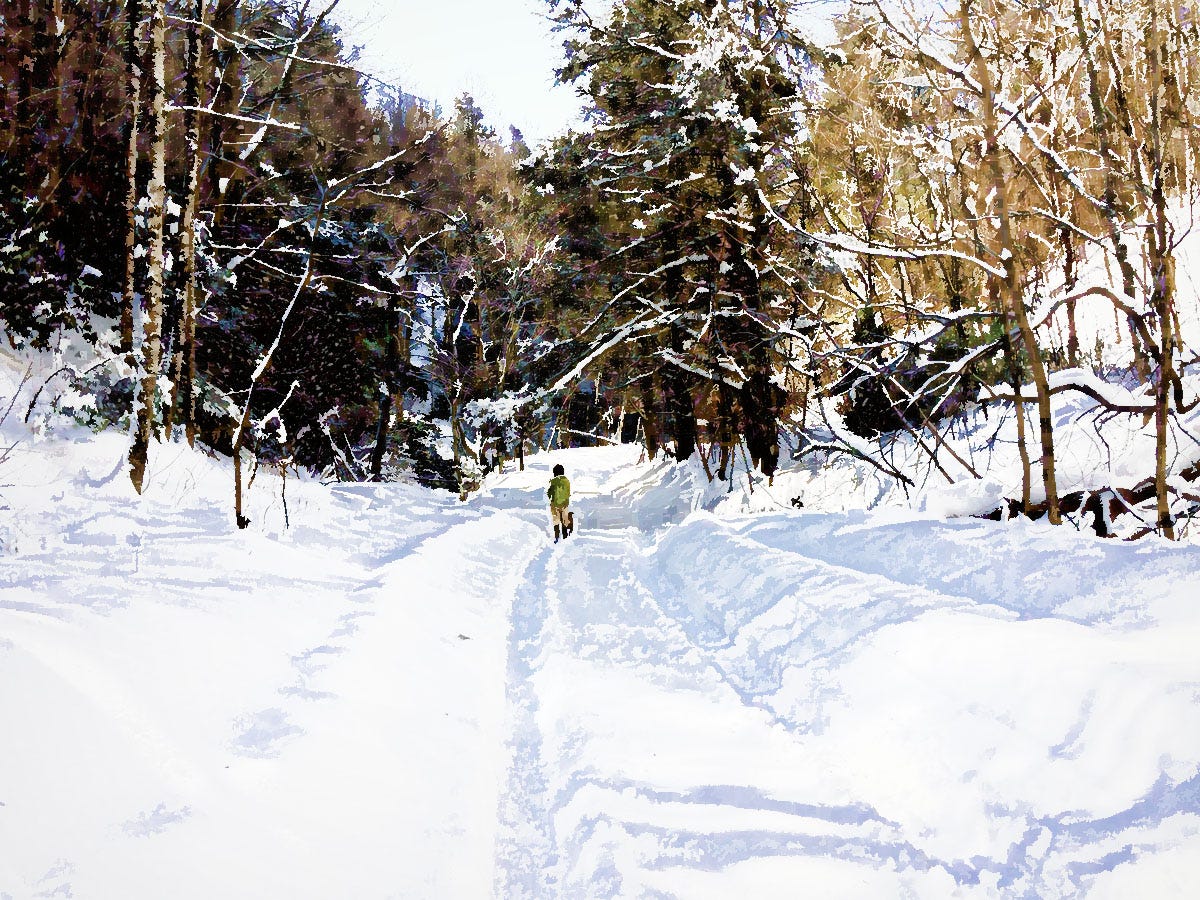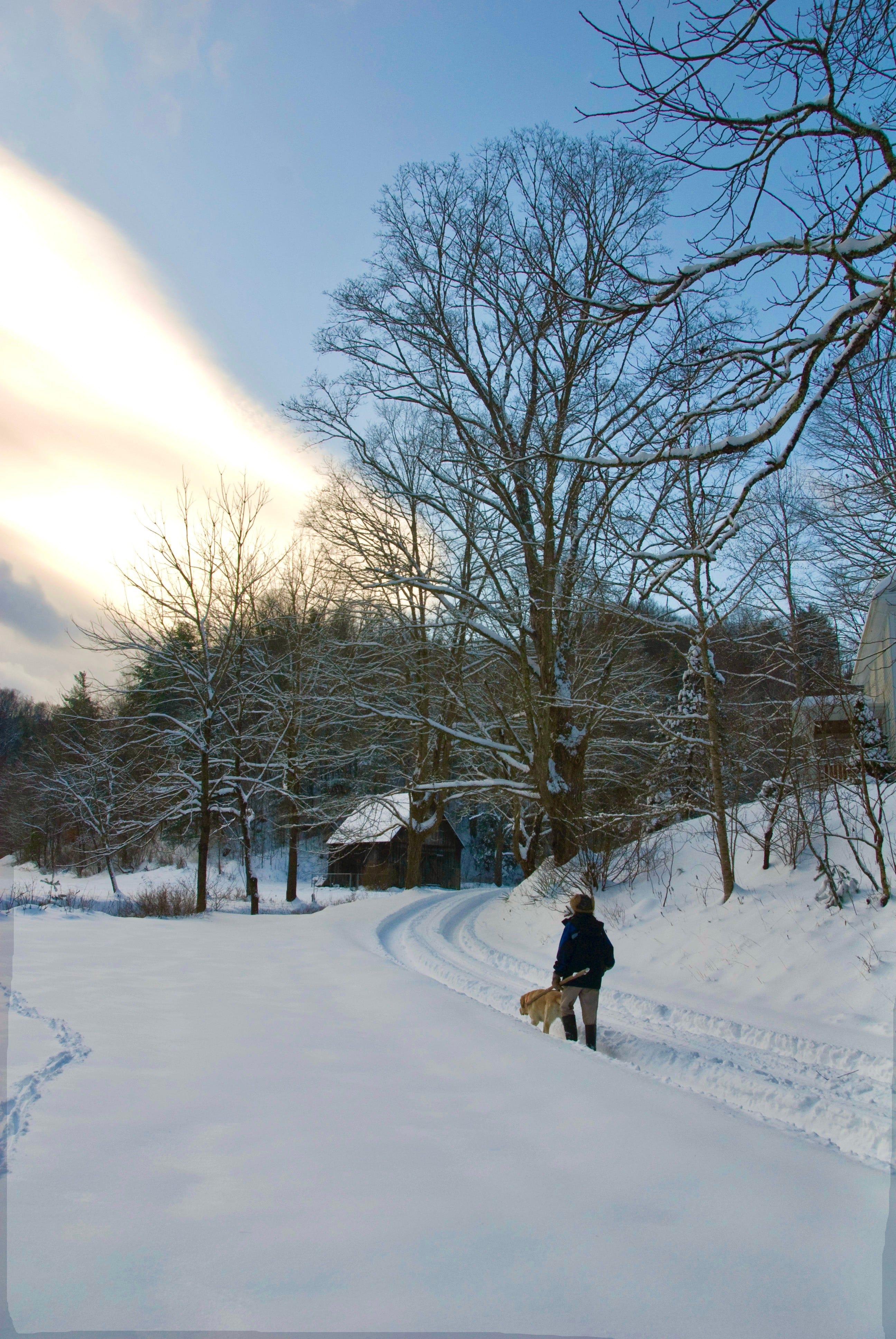This bit of writing (which was also a radio essay on WVTF) comes from February 2007. And why, just now: I proposed “Smells and Memories” as a prompt for the April meeting of Lenoir Words—the writers’ group here where we live now. And that topic for me arose out of diving back into the larger topic of smells and memory, smells and emotion. And I will come around with posts on that soon.
The short personal essay was called “A Nose for Winter.” I still have Brook’s book, The Appalachians, mentioned in the piece, and took it with me to the reading yesterday. The pressed plant was no longer there. But I remember. And I can still smell it once more: in memory.
Anyone who walks in Virginia’s fields and forests in winter might easily forget that they even have a sense of smell. The olfactory world of the cold months can seem like a trackless desert for the nose. And yet, if you make a point of it and know where to look–or sniff–you can find ways to use your sense of smell, even on the coldest winter day.
On our winter walks along Goose Creek, we’re never far from a twig of spicebush. Scratched with the thumbnail, your dormant nose will wake up to an antiseptic smell with overtones of clove and cinnamon. And if I whittle a small branch of yellow birch up along the forest path, it will smell just like teaberry gum, even on the grayest of February days.

We make a point to sample fragrant plants like these as a kind of smelling salts; they jostle our senses back to life in the monochrome hibernation of midwinter.
But it is the inconspicuous remnants of a small plant called Pennyroyal that I search for here on a raw February day. It is the musty aroma of this little mint in winter that reaches deepest into that place in my mind where fragrance and memory live so intimately together. I smelled this one when there was snow on the ground, and the emotional power it held on me once almost brought tears.
We had left Wytheville—our home for twelve years and moved back to my home town of Birmingham. I quickly became immersed in fourteen-hour days of physical therapy classes and labs.
I was soon as absorbed and unreachable to myself as I have ever been, retreating into a single-mindedness of purpose that comes to a man who knows that if he looks down even briefly from the precarious balance in all he has taken on, he will surely fall.
But, in a rare moment that year living away from mountains, I slowed down enough one day to pull from the shelf near my desk a personal book, not a text—a natural history simply called The Appalachians.

The book fell open effortlessly across my lap to a page marked by a pressed plant: pennyroyal from back home—a stow-away from a place, a time, and a personal identity that, by then, I could barely remember having lived.
I lifted the flattened sprig from between the pages with some hesitation, knowing where it would carry me. I crushed a small spring of tiny, drab flowers between my fingers and was transported back to a place I had tried so hard to put out of my mind.
I recalled it clearly: we used to put little pieces of pennyroyal on the hot woodstove in winter, and its sweetness would fill the house. How could I ever forget those times?
Often, on walks in the Virginia hills when the children were small, I secretly plucked the dry whorls of Pennyroyal from the bank of a favorite trail. Later on, concealed in my cupped hands, I stuck it under their noses for a sniff. “What is it?” I asked them, knowing they knew the answer.

Their reply was usually silly—the name of a bird or salamander— just to pretend they couldn’t be bothered to remember Dad’s silly nature lore. But they remembered: the sense of smell plus the power of memory saw to that.
And I remembered—too well, so far from home in time and space. With a lump in my throat, I placed the pressed plant back between pages about mountains I had loved and left.
And— to which we have now returned for good.
And even now, on a bleak gray day in the middle of winter, to smell this mousey little plant crushed against the palm of my hand is a sacrament of belonging. Even in winter, this cold valley just smells like home.

 – Fred First is an author, naturalist, photographer watching Nature under siege since the first Earth Day. Cautiously hopeful. Writing to think it through. Thanks for joining me.
– Fred First is an author, naturalist, photographer watching Nature under siege since the first Earth Day. Cautiously hopeful. Writing to think it through. Thanks for joining me.
